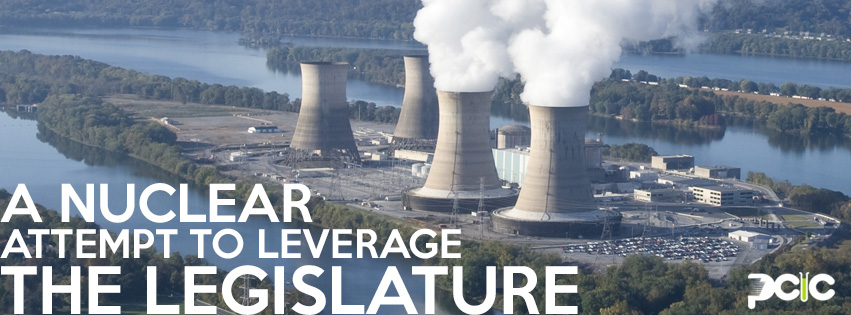This week, on behalf of our members, the Pennsylvania Chemical Industry Council sent a letter to each Pennsylvania legislator to voice opposition to House Bill 11 and Senate Bill 510. This proposed legislation would increase all consumer electric bills, including those of the state’s chemical and petrochemical manufacturers.
According to an analysis by the Industrial Energy Consumers of Pennsylvania, if nuclear power generation were to be added to the Alternative Energy Portfolio Standard, the state’s industrial consumers would face at least $192 million in additional electricity costs annually.
Small manufacturers could annually pay an extra $60,000 on average, while larger manufacturers could see a nearly $2 million annual increase in electric costs. Large manufacturers with multiple facilities could face a nearly $4 million annual hike.
Deregulation in Pennsylvania has allowed competitive markets to drive energy prices, which has resulted in consumers, including our members, benefiting from new and more efficient electric generation sources. It also has allowed consumers, rather than utility companies, to drive the market.
The economic advantage of new energy resources has spurred billions of dollars of private investment in Pennsylvania’s $24 billion chemical industry. These investments have energized communities all over Pennsylvania — the state’s chemical industry supports more than 80,000 jobs, generating more than $410 million in state and local taxes and $933 million in federal taxes yearly.
With the right policies in place, more investment and job growth will be realized.
PCIC members appreciate nuclear power’s role in our electric grid and the benefit of a diverse energy portfolio; however, all plants but Three Mile Island (TMI) remain profitable and competitive, and PJM Interconnection, the electric grid operator, forecasts no change in reliability upon TMI’s retirement.
If this legislation were to be passed, Public Utility Commissioner Andrew Place stated, “... the subsidization of such a significant portion of the wholesale energy market would be distortional to competitive market prices.” Place noted that the legislation does not provide certainty that threatened nuclear plants will not close (continue reading).
Essentially, it would leave little of the electric market to competitive choice, negating the benefits realized by electric deregulation. A free market approach to energy benefits the consumer, while driving private investment in innovation.
While the Alternative Energy Portfolio Standard provides a government-mandated “leg up” to renewables, the Legislature chose at that time to support new and emerging alternative technologies, not recognized industries, so they would have the opportunity to become established within the commonwealth.
PCIC’s members support advancements in carbon emission reductions; however, the nuclear industry in Pennsylvania does not represent new and emerging advancements in renewable technologies, and carve-outs simply would prop up individual power plants that are no longer economically viable, using taxpayer dollars better invested elsewhere.
The opportunity for chemical and petrochemical manufacturing growth in the region is projected at $36 billion in new capital investment and 100,000 new jobs by 2025. As the state works to attract these energy-intensive users, energy costs, policy and regulation will play a critical role in securing or deterring investment.
With more than $1 billion in profits projected for 2018-19, Pennsylvania’s nuclear industry, as a whole, is not at risk. Pennsylvania’s competitive electric market is working, and we ask our representation in the Legislature to protect consumers by opposing House Bill 11 and Senate Bill 510.
